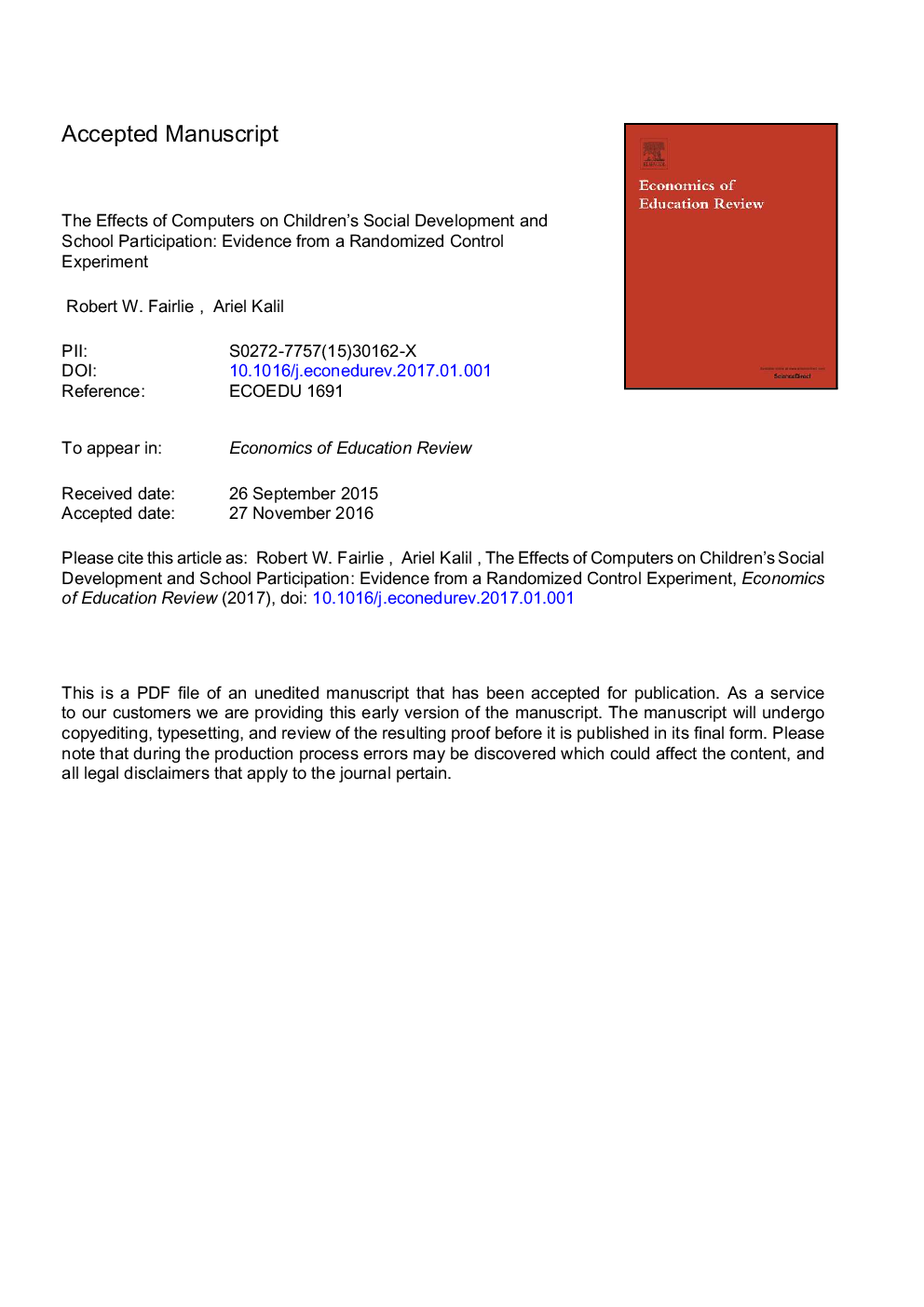| Article ID | Journal | Published Year | Pages | File Type |
|---|---|---|---|---|
| 4938339 | Economics of Education Review | 2017 | 35 Pages |
Abstract
Concerns over the perceived negative impacts of computers on social development among children are prevalent but largely uninformed by plausibly causal evidence. We provide the first test of this hypothesis using a large-scale randomized control experiment in which more than one thousand children attending grades 6-10 across 15 different schools and 5 school districts in California were randomly given computers to use at home. Children in the treatment group are more likely to report having a social networking site, but also report spending more time communicating with their friends and interacting with their friends in person. There is no evidence that computer ownership displaces participation in after-school activities such as sports teams or clubs or reduces school participation and engagement.
Related Topics
Social Sciences and Humanities
Economics, Econometrics and Finance
Economics and Econometrics
Authors
Robert W. Fairlie, Ariel Kalil,
